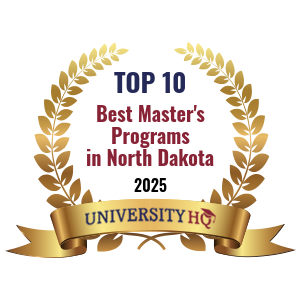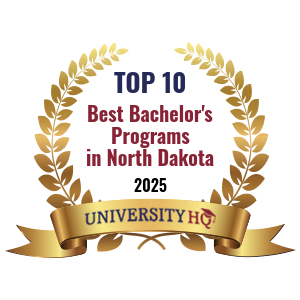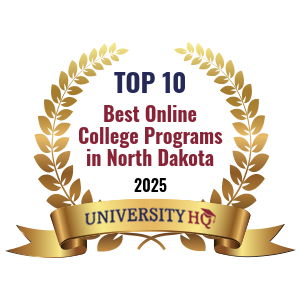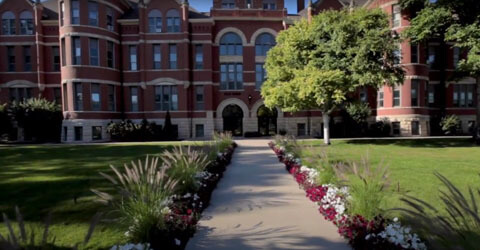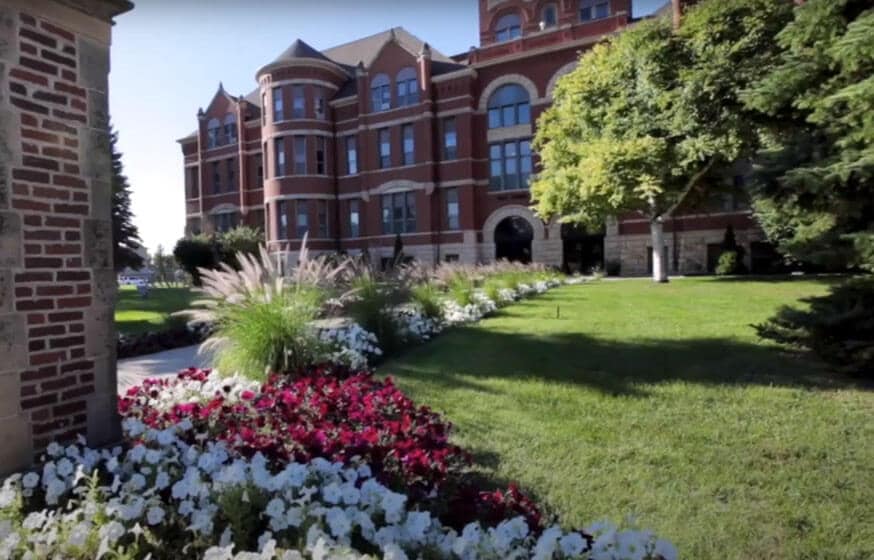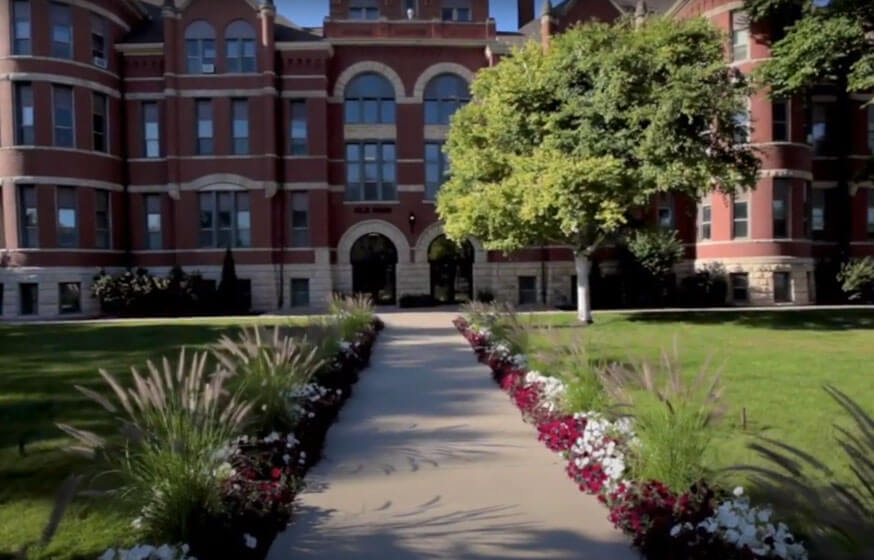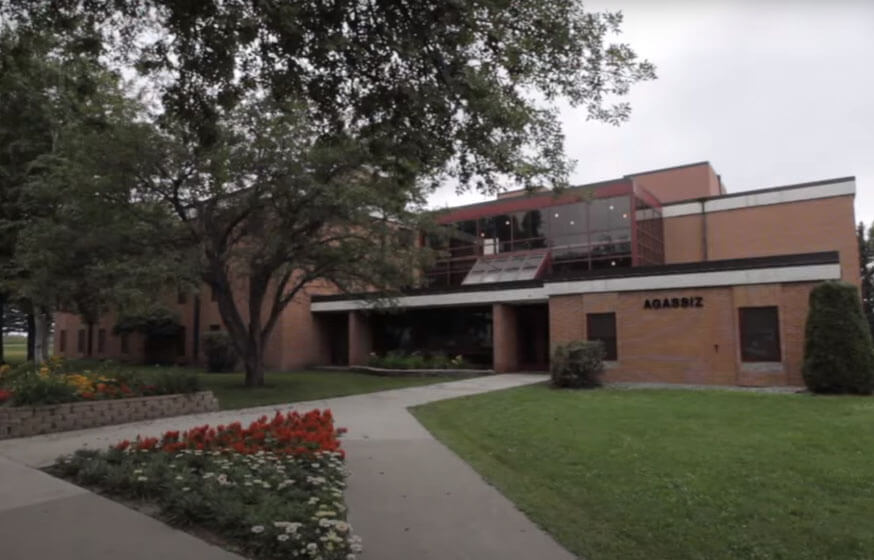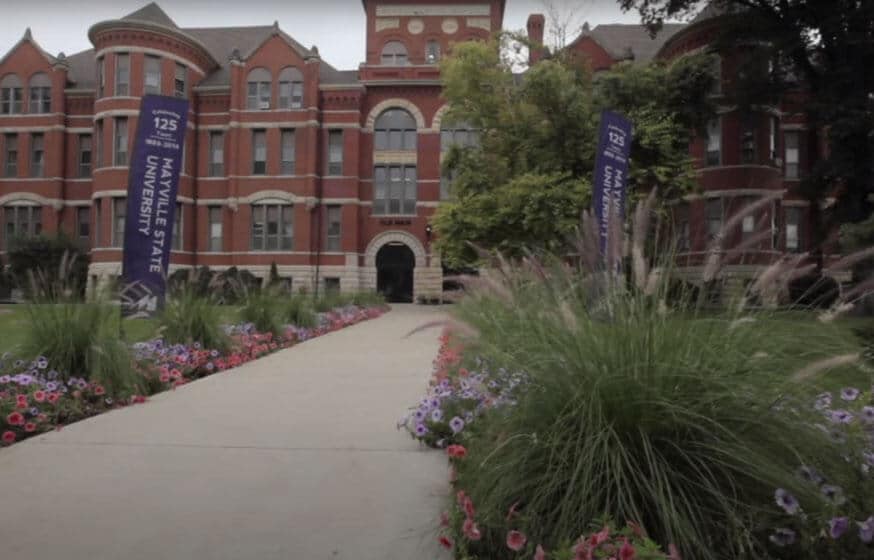Get Matched With Online Colleges
This public university in Maywood, North Dakota has a student population of about 1,200. Of those, all but a few dozen are undergraduates. The graduate programs available include a Master of Arts in Teaching and Master of Science in Nursing. MSU opened in 1889. Historically, MSU has been a teaching college. There is still a focus on education majors, with nine undergraduate teaching majors, including university studies. Seventeen non-teaching majors are available. Students can also earn associate degrees in business management, early childhood associate, and liberal arts university studies.
Search All Programs
Overview of Mayville State University
On-campus classes are available for those enrolled in the Dakota Nursing Program. Study aboard programs are also offered to prepare students for working and living in an increasingly global society.
MSU’s mission includes being “the affordable, accessible collegiate option that gives individuals the opportunity to become professional, productive members of society.” Its core values include a focus on students and individual support, commitment to teaching and learning excellence, promoting and valuing an open and diverse community, and integrating leadership into all aspects of the MSU experience. Overall, MSU is dedicated to personal service. Individuals are encouraged to develop and strengthen leadership skills and abilities. They should also be provided opportunities to enhance the common good.
General Information
| School Type | Public |
|---|---|
| Campus Setting | Rural: Remote |
| Campus Housing | Yes |
| Student Faculty Ratio | 13:1 |
| Graduation Rate | 34% |
| Year Founded | 1889 |
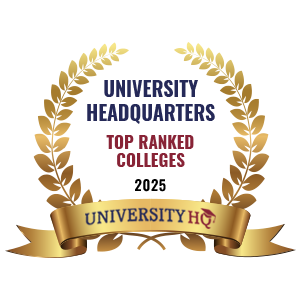
Student Enrollment
Total Students1,212
1,187
25
Undergraduate Student
Male 427
Female 760
Graduate Student
Male 9
Female 16
Explore Map
Top Rankings For Mayville State University
Admissions
APPLICATIONS385
ACCEPTANCE270
Acceptance Rate70%
Enrollment 110
| Admissions | |
|---|---|
| Application Fee | $35 |
| High School GPA | Required |
| High School Rank | NA |
| High School Transcripts | Required |
| College Prep Courses | Considered But Not Required |
| Recommendations | NA |
| SAT/ACT | Required |
| Other Test (Wonderlic,WISC-III,etc) | Considered But Not Required |
| TOEFL (Test of English as a Foreign Language) | Considered But Not Required |
| Application Deadline | Rolling |
| Common Application Accepted | No |
Tuition Cost & Financial Aid
Ninety-four percent of students received some form of financial aid in their freshman year. Of that, 85% received grants or scholarships, and 59% took out student loans. The average amount of grant or scholarship aid was $4,665 and the average amount of student loans was $6,644, and the average amount of a federal Pell grant, received by 38%, was $3,942.
For a recent academic year, in-state tuition was $7,049 while out-of-state tuition was $9,946. On-campus room and board was $8,015. The average graduate school tuition was $5,580. Factoring in grants, scholarships, and other forms of financial aid, the average net price (the cost that students were responsible for after financial aid was applied) for undergraduates in this year was $12,479.
| Average net price | 2018-2019 |
|---|---|
| Net Price | $12,479 |
| Average Total Aid | $4,940 |
| Students Receiving Financial Aid | 94% |
| Room & Board | $8,015 |
Sticker Price
- Tuition In-State - $7,049
- Tuition Out-of-State - $9,946
- Books and Supplies - $1,000
- Room & Board - $8,015
- Other - $3,100
Academics
When considering colleges or universities, you’ll want to take a careful look at some particularly useful metrics. Retention rates are a critical indicator. This rate reveals the number of first-time students returning to the institution in their second year of college. High retention rates are a positive element, showing that students felt they received everything they needed while attending as a freshman, while low retention rates could be a negative. The school’s retention rate of 60% is relatively high.
MSU’s four-year graduation rate is 17%, while its six-year graduation rate is 34%. MSU is accredited through the Higher Learning Commission Open Pathways ten-year cycle. The graduation rate measures the percentage of first-time students completing their degrees within 150% of the standard program time. That is usually six years. If graduation rates are low, the school may have systemic issues, but you might also want to check out their transfer rate. It may be that the school prepares plenty of students to succeed elsewhere.
The MSU acceptance rate is 70% and admissions are accepted throughout the year. The student-to-faculty ratio is 13 to 1, offering students exceptional personal attention. A good student-to-faculty ratio allows students more opportunity to interact with professors. MSU’s faculty consists of 50 full-time instructors and one part-time instructor. Class sizes are small compared to other colleges and universities and distance learning is available for both undergraduate and graduate programs.
Retention
Rate
4 year
Graduation
Rate
6 year
Graduation
Rate
Student Population Total
Student Population 1,212
1,187
25
Most Popular Programs & Majors
(# of Diplomas Awarded by Subject)
| All Education Majors | 47 Total Graduates / 24% |
|---|---|
| Elementary Education and Teaching | 32 Graduates |
| Early Childhood Education and Teaching | 5 Graduates |
| Mathematics Teacher Education | 4 Graduates |
| Physical Education Teaching and Coaching | 2 Graduates |
| Social Science Teacher Education | 2 Graduates |
| Health Professions and Related Programs | 45 Total Graduates / 23% |
| Registered Nursing/Registered Nurse | 45 Graduates |
| All Business Majors | 27 Total Graduates / 14% |
| Business Administration, Management and Operations, Other | 17 Graduates |
| Business Administration and Management, General | 10 Graduates |
| Liberal Arts and Sciences, General Studies and Humanities | 20 Total Graduates / 10% |
| General Studies | 20 Graduates |
| Family and Consumer Sciences/Human Sciences | 13 Total Graduates / 7% |
| Child Care and Support Services Management | 13 Graduates |
| All Other Diplomas | 21% |
Outcome & Salary
The early career salary for a graduate of Mayville State University averages $43,300. However, their mid-career salaries increase to $85,800, which is higher than the average mid-career income for graduates from many other public institutions.
The average net education price at MSU is $49,916; a graduate’s 10-year earning potential is $613,900; and their 20 year earnings potential is $1,471,490. If you subtract the cost of education from their earnings, you can find their likely return on investment (ROI). This makes the 10-year projected ROI $564,574 and their 20-year projected ROI $1,421,54.
You can compare that to the national average salary of $38,792 for someone without a college education. Their 10-year projected income is $387,920 and their 20-year projected earnings are $775,840.
| Graduates Salary | |
|---|---|
| College Grads Early Career Salary | $43,300 |
| College Grads Average Salary | $61,349 |
| College Grads Mid Career Salary | $85,800 |
| Return on Investment (ROI) | |
|---|---|
| 10 Year Salary Earnings Potential | $613,490 |
| 20 Year Salary Earnings Potential | $1,471,490 |
| Cost of Education (Net Price) 4 Year | $49,916 |
| 10 Year Projected ROI | $563,574 |
| 20 Year Projected ROI | $1,421,574 |
| No College Education Salary Comparison | |
|---|---|
| National Average Salary | $38,792 |
| 10 Year Projected Income | $387,920 |
| 20 Year Projected Income | $775,840 |
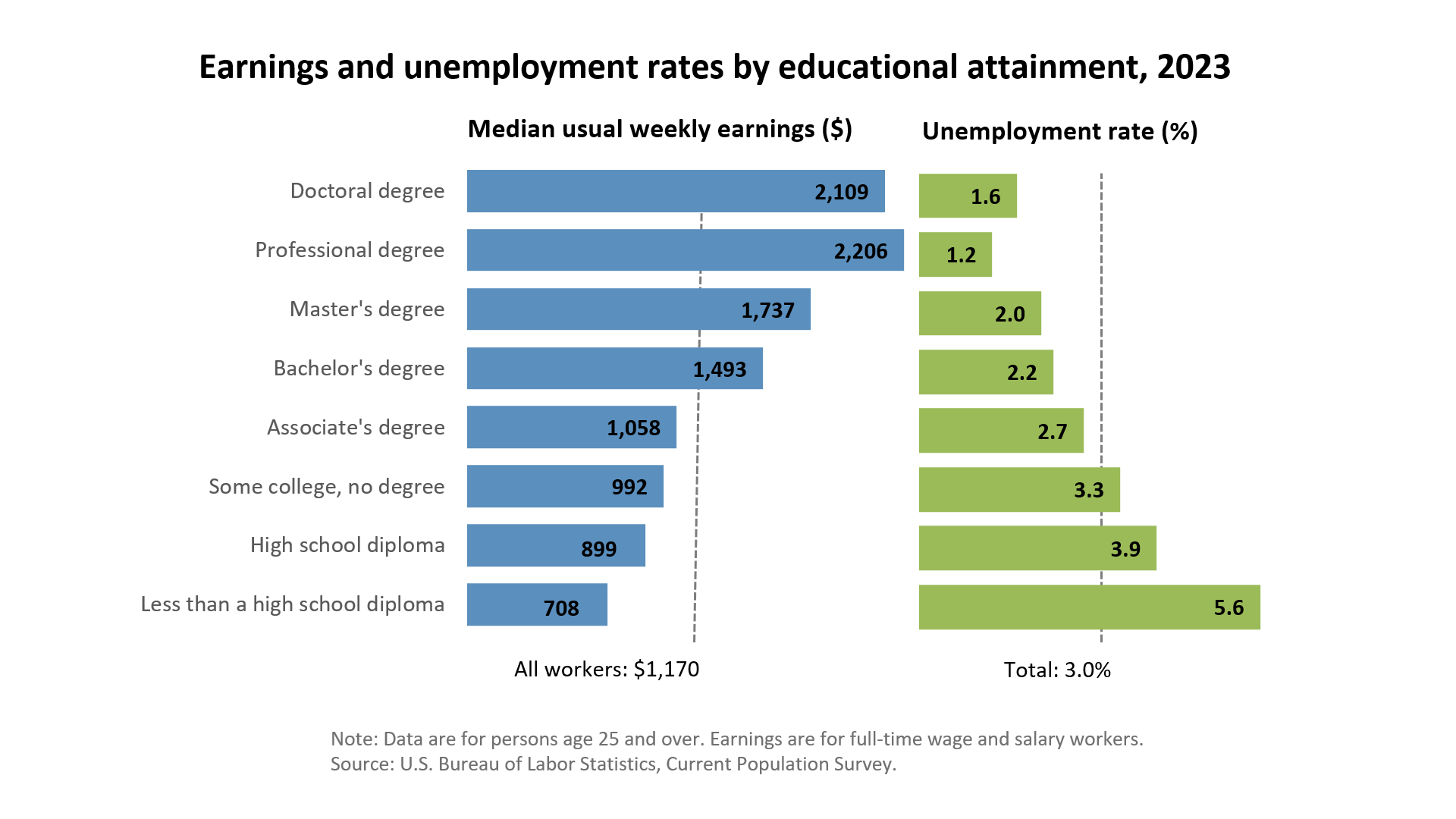
Related Top College Resources

